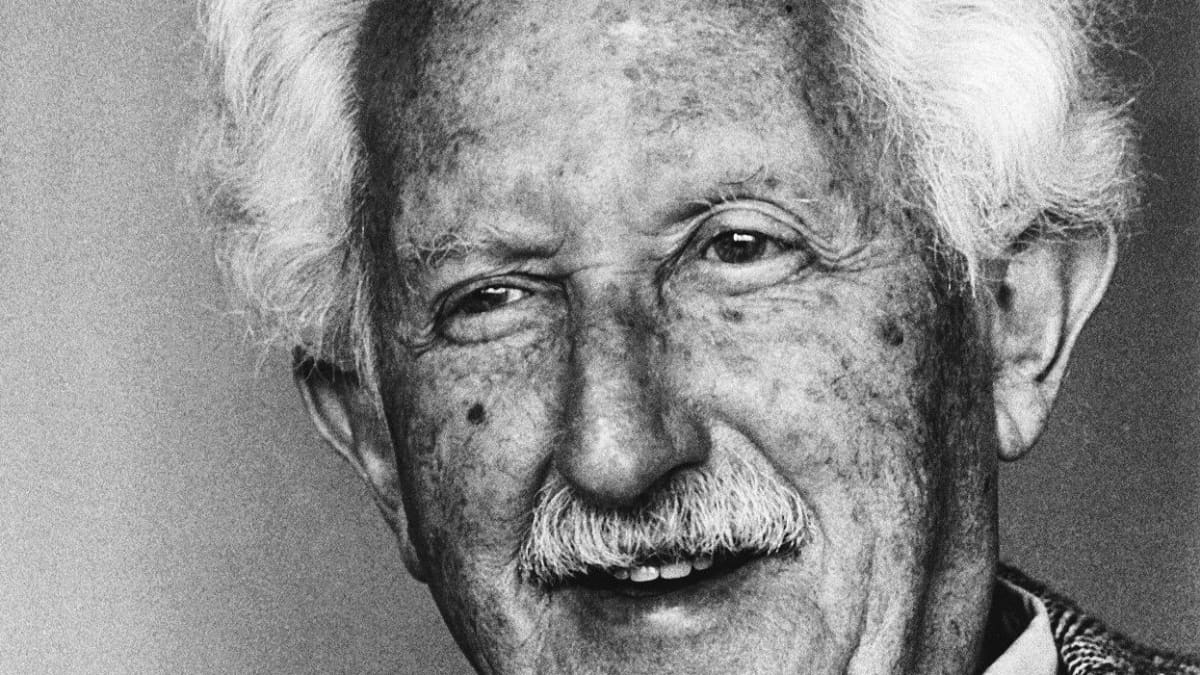
Erik Erikson, a name synonymous with developmental psychology, revolutionized our understanding of human growth. His theory of psychosocial development, outlining eight stages that stretch from infancy to adulthood, offers a comprehensive lens through which to view the complexities of human behavior and personality formation. Erikson's work, deeply rooted in the interplay between society and individual identity, highlights the pivotal moments that shape our sense of self and our relationships with others. Whether you're a student delving into psychological theories, a professional seeking to apply these concepts, or simply curious about the forces that mold us into who we are, Erikson's insights provide valuable perspectives. In this introduction, we'll uncover 12 fascinating facts about Erik Erikson, each shedding light on the man behind the theory and the enduring impact of his contributions to psychology.
Key Takeaways:
- Erik Erikson, a famous psychologist, created the idea of "identity crisis" and outlined 8 stages of development. His work still influences psychology and education today.
- Erik Erikson's legacy lives on through the Erikson Institute in Chicago, his impact on education, and the continued relevance of his developmental stages in psychology.
Who Was Erik Erikson?
Erik Erikson was a renowned developmental psychologist and psychoanalyst known for his theory on psychological development across the lifespan. His work has influenced various fields, including psychology, education, and sociology. Here are some intriguing facts about Erikson's life and contributions.
-
Born in Germany: Erik Erikson was born on June 15, 1902, in Frankfurt, Germany. His birth name was Erik Salomonsen.
-
Identity Crisis: Erikson coined the term "identity crisis," which describes a period of uncertainty and confusion in a person's life, often during adolescence.
-
Eight Stages of Development: Erikson is best known for his theory of psychosocial development, which outlines eight stages that individuals pass through from infancy to late adulthood.
Erikson's Early Life and Education
Erikson's early life was marked by a search for identity, which later influenced his work. His educational journey was unconventional but pivotal in shaping his theories.
-
Art School Dropout: Erikson initially pursued a career in art and attended art school. However, he dropped out and traveled around Europe, seeking his true calling.
-
Psychoanalytic Training: Erikson trained under Anna Freud, the daughter of Sigmund Freud, at the Vienna Psychoanalytic Institute. This experience profoundly impacted his theoretical development.
-
Teaching Career: Before becoming a prominent psychologist, Erikson taught at a private school in Vienna, where he met his wife, Joan Serson.
Erikson's Professional Achievements
Erikson's professional life was filled with significant achievements and contributions to psychology. His work continues to be relevant today.
-
Harvard University: Erikson joined the faculty at Harvard University, where he conducted research and taught courses on human development.
-
Pulitzer Prize Nominee: Erikson's book "Gandhi's Truth: On the Origins of Militant Nonviolence" was nominated for a Pulitzer Prize and won a National Book Award.
-
Consultant for the U.S. Government: During World War II, Erikson served as a consultant for the U.S. government, applying his theories to understand the psychological impact of war on soldiers.
Erikson's Legacy
Erikson's legacy extends beyond his lifetime, influencing various fields and inspiring future generations of psychologists and educators.
-
Erikson Institute: The Erikson Institute in Chicago, named in his honor, is a graduate school focused on child development and early childhood education.
-
Influence on Education: Erikson's theories have been integrated into educational practices, emphasizing the importance of social and emotional development in learning.
-
Continued Relevance: Erikson's work remains relevant in contemporary psychology, with his stages of development still being taught and applied in various contexts.
A Final Glimpse at Erikson's Legacy
Erik Erikson's theories have left an indelible mark on psychology, offering a lens through which to view human development across the lifespan. His eight stages of psychosocial development, grounded in the belief that personality evolves in response to our experiences, continue to influence not just psychologists but educators, parents, and anyone interested in the forces that shape us. Erikson taught us that each stage of life comes with its own challenges and opportunities for growth. His work reminds us that development doesn't stop in childhood or adolescence; it's a lifelong journey. By understanding Erikson's stages, we're better equipped to navigate our own lives and support others in their journeys. His legacy is a testament to the complexity and beauty of human growth, encouraging us to reflect on our own lives and the stages we've navigated, each step shaped by the intricate dance between our needs and the world around us.
Frequently Asked Questions
Was this page helpful?
Our commitment to delivering trustworthy and engaging content is at the heart of what we do. Each fact on our site is contributed by real users like you, bringing a wealth of diverse insights and information. To ensure the highest standards of accuracy and reliability, our dedicated editors meticulously review each submission. This process guarantees that the facts we share are not only fascinating but also credible. Trust in our commitment to quality and authenticity as you explore and learn with us.
